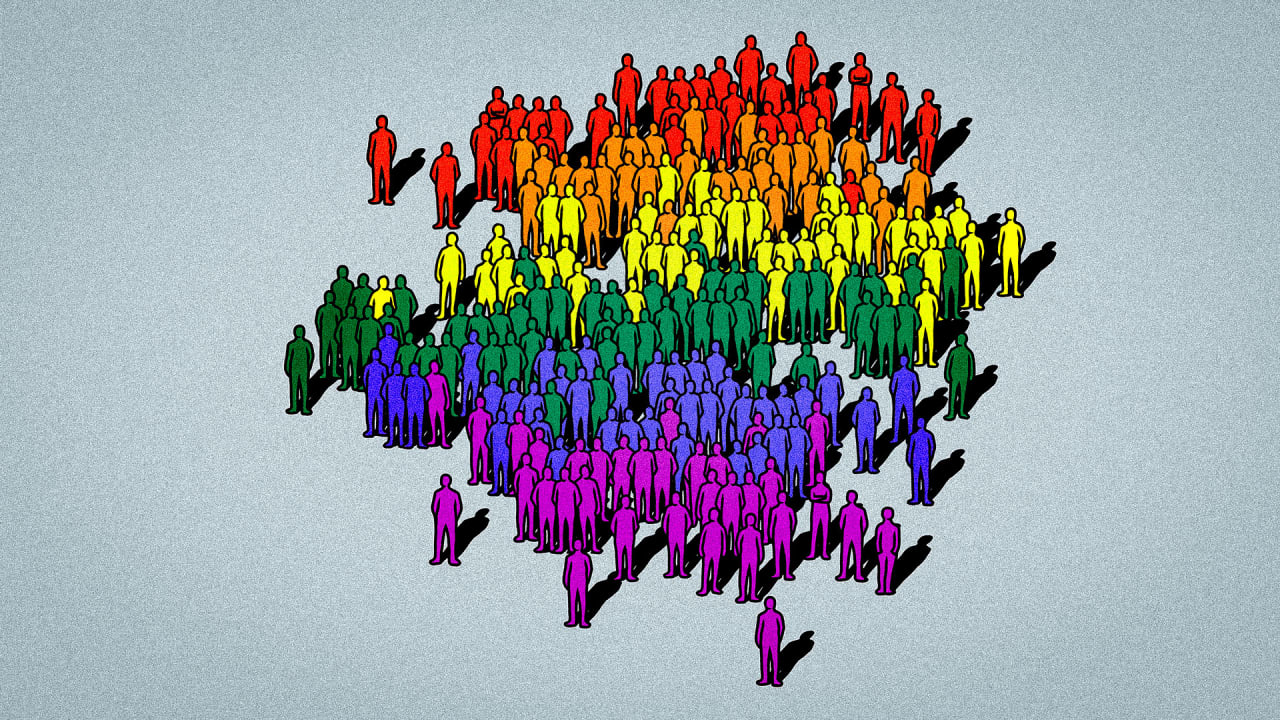Florida’s ‘Don’t Say Gay’ bill is just the beginning
Florida’s Senate voted this week to pass the controversial “Don’t Say Gay” bill, whose official name is the Parental Rights in Education bill. If signed by Governor Ron DeSantis, it would limit what teachers can discuss about sexual orientation and gender identity. The bill stipulates “a school district may not encourage classroom discussion about sexual orientation or gender identity in primary grade levels or in a manner that is not age-appropriate or developmentally appropriate for students.” It also allows parents to sue schools or teachers who discuss these topics. DeSantis has not confirmed whether or not he will sign the bill, but he has said he finds it “entirely inappropriate” for teachers to discuss gender identity with students. Over the weekend, his press secretary tweeted, “The bill that liberals inaccurately call ‘Don’t Say Gay’ would be more accurately described as an Anti-Grooming Bill.” The bill grabbed more than its share of headlines this week, but Florida is not alone: “Don’t Say Gay” is part of a rising trend of anti-LGBTQ legislation across the country. According to Freedom for All Americans, a bipartisan campaign that advocates for LGBTQ people, lawmakers have proposed 197 anti-LGBTQ bills since January, 168 of which are still alive. Compare that to the entire legislative session last year when lawmakers proposed 139 anti-LGBTQ bills. Freedom for All Americans built an in-depth legislative tracker that lists each anti-LGBTQ bill and groups them under various categories, such as “anti-transgender” or “youth sports bans.” It also reveals how many of these bills focus specifically on school policy—ranging from removing LGBTQ discussions from classroom discussions to book bans. In the Kansas House of Representatives, for instance, lawmakers are looking to change its obscenity law to include classroom materials with “homosexuality.” A Tennessee House bill looks to ban classroom material that would “promote, normalize, support, or address lesbian, gay, bisexual, or transgender (LGBT) lifestyles.” In the same vein, on March 1, the Oklahoma Senate Education Committee passed a bill, SB 1142, that seeks to ban LGBTQ+ books from schools and school libraries. Authored by State Senator Rob Standridge, the bill allows parents to request schools remove books that “make as their primary subject the study of sex, sexual lifestyles, or sexual activity, or books that are of a controversial nature.” Standridge also authored another bill, SB 1470, which would charge anyone at a school “directly or indirectly promoting positions in opposition to closely held religious beliefs” of students “$10,000 per incident, per day.” School staff found in violation of the Oklahoma bill would have to pay the $10,000 from personal funds, and anyone found receiving help from other groups or individuals would be banned from state school employment for up to five years. SB 1470 is currently being read by the Senate’s Education committee. Cindy Nguyen, the ACLU of Oklahoma policy director, told News on 6 that when Oklahoma successfully passed the ban on critical race theory last year it opened the door to a “surplus of censorship bills.” According to a 2021 survey by the Trevor Project, a suicide prevention organization for LGBTQ youth, 42% of LGBTQ youth seriously considered suicide in the past year. However, the survey found that LGBTQ youth who had “access to spaces that affirmed their sexual orientation and gender identity—including schools” had lower suicide attempt rates. “Every LGBTQ young person deserves to attend a school that provides an inclusive, affirmative environment—not one that aims to erase their existence,” Amit Paley, CEO and executive director of the Trevor Project, said in a statement condemning the Florida bill.

Florida’s Senate voted this week to pass the controversial “Don’t Say Gay” bill, whose official name is the Parental Rights in Education bill. If signed by Governor Ron DeSantis, it would limit what teachers can discuss about sexual orientation and gender identity. The bill stipulates “a school district may not encourage classroom discussion about sexual orientation or gender identity in primary grade levels or in a manner that is not age-appropriate or developmentally appropriate for students.” It also allows parents to sue schools or teachers who discuss these topics.
DeSantis has not confirmed whether or not he will sign the bill, but he has said he finds it “entirely inappropriate” for teachers to discuss gender identity with students. Over the weekend, his press secretary tweeted, “The bill that liberals inaccurately call ‘Don’t Say Gay’ would be more accurately described as an Anti-Grooming Bill.”
The bill grabbed more than its share of headlines this week, but Florida is not alone: “Don’t Say Gay” is part of a rising trend of anti-LGBTQ legislation across the country. According to Freedom for All Americans, a bipartisan campaign that advocates for LGBTQ people, lawmakers have proposed 197 anti-LGBTQ bills since January, 168 of which are still alive. Compare that to the entire legislative session last year when lawmakers proposed 139 anti-LGBTQ bills.
Freedom for All Americans built an in-depth legislative tracker that lists each anti-LGBTQ bill and groups them under various categories, such as “anti-transgender” or “youth sports bans.” It also reveals how many of these bills focus specifically on school policy—ranging from removing LGBTQ discussions from classroom discussions to book bans.
In the Kansas House of Representatives, for instance, lawmakers are looking to change its obscenity law to include classroom materials with “homosexuality.” A Tennessee House bill looks to ban classroom material that would “promote, normalize, support, or address lesbian, gay, bisexual, or transgender (LGBT) lifestyles.”
In the same vein, on March 1, the Oklahoma Senate Education Committee passed a bill, SB 1142, that seeks to ban LGBTQ+ books from schools and school libraries. Authored by State Senator Rob Standridge, the bill allows parents to request schools remove books that “make as their primary subject the study of sex, sexual lifestyles, or sexual activity, or books that are of a controversial nature.” Standridge also authored another bill, SB 1470, which would charge anyone at a school “directly or indirectly promoting positions in opposition to closely held religious beliefs” of students “$10,000 per incident, per day.”
School staff found in violation of the Oklahoma bill would have to pay the $10,000 from personal funds, and anyone found receiving help from other groups or individuals would be banned from state school employment for up to five years. SB 1470 is currently being read by the Senate’s Education committee. Cindy Nguyen, the ACLU of Oklahoma policy director, told News on 6 that when Oklahoma successfully passed the ban on critical race theory last year it opened the door to a “surplus of censorship bills.”
According to a 2021 survey by the Trevor Project, a suicide prevention organization for LGBTQ youth, 42% of LGBTQ youth seriously considered suicide in the past year. However, the survey found that LGBTQ youth who had “access to spaces that affirmed their sexual orientation and gender identity—including schools” had lower suicide attempt rates.
“Every LGBTQ young person deserves to attend a school that provides an inclusive, affirmative environment—not one that aims to erase their existence,” Amit Paley, CEO and executive director of the Trevor Project, said in a statement condemning the Florida bill.






















